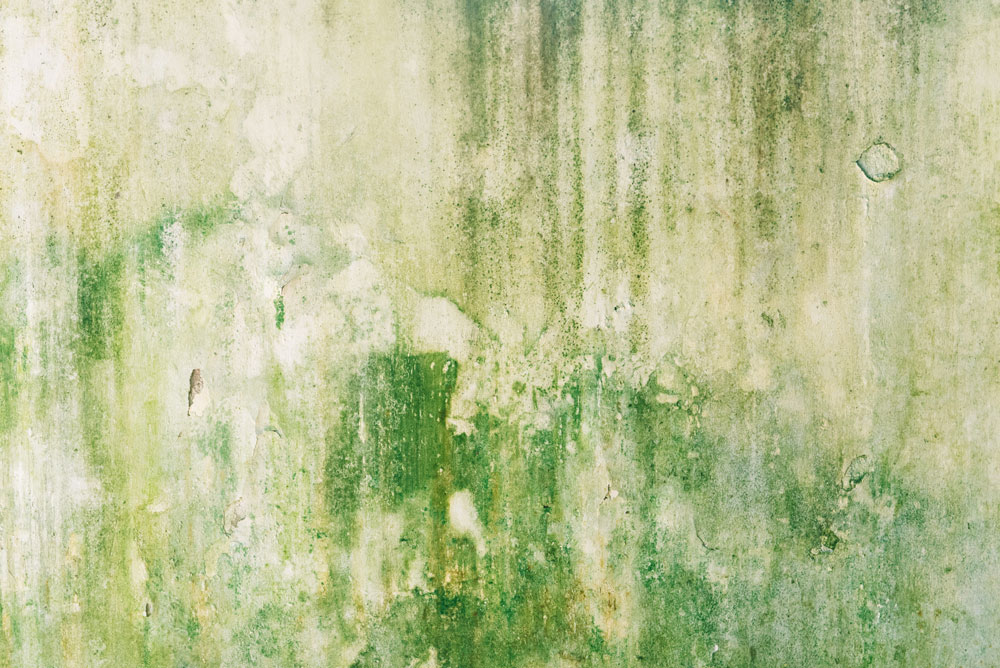What Causes Green Mould On Walls?
 CONTENTS
CONTENTS
- What is green mould?
- What causes mould on walls?
- Is green mould on walls dangerous?
- How to remove mould from walls
- How to prevent mould growing on walls
- Book your mould remediation today
The formation of green spots and stains on your walls is not just an unattractive addition to your home. It can damage your paint and wallpaper, and cause residents to suffer from serious health problems. Prompt removal by professional mould cleaners is essential.
At ICE Cleaning, we offer thorough, long-lasting mould cleaning services. With every mould clean we offer a lifetime guarantee* so if the mould comes back following treatment, we will return to site to remove it for free.
Keep reading to learn what is causing green mould to grow on your walls and how to get rid of it.
*subject to advisories
What is green mould?
Mould is a type of fungus that grows in environments that contain excess moisture. It is usually black, white, or green, but can be a range of colours depending on the type of mould, its age, humidity levels, light levels, and its food source.
There are lots of different types of green mould that can grow in your home: Aspergillus and Cladosporium.
Aspergillus, the more prevalent one, can grow on walls, insulation materials, or even clothing when moisture levels are high. Inhaling its spores can cause aspergillosis, a lung or sinus infection which can spread to other parts of the body. It can be a yellow-green shade.
Cladosporium tends to stick around cooler areas such as bathrooms or external walls exposed to harsh weather elements. It usually looks olive green, but it can also be brown or black.
What causes mould on walls?
Mould, including the unsightly green variety, is usually a result of dampness and lack of ventilation. It thrives in moist environments where it can easily feed off organic material such as wood or plaster.
The main cause of mould on walls is humid air causing condensation to form on them, and rising and penetrating damp. Poorly insulated homes also attract condensation that provides an ideal breeding ground for these spores to multiply.
Mould is more likely to form on walls in rooms with high humidity levels, like the bathroom and kitchen. It can be found behind furniture, too, as poor air flow means humid pockets of air can get trapped there.
Is green mould on walls dangerous?
Mould is harmful to be exposed to as it releases allergens, irritants, and occasionally even toxic substances. Inhaling, ingesting, and touching mould can trigger an allergic reaction, respiratory infections, and asthma attacks.
Prolonged exposure and exposure to toxic forms of mould can cause more serious health issues including sick building syndrome. If you have a weakened immune system, or suffer from respiratory and skin conditions, you are especially at risk of major health problems.
Mould also feeds off organic materials which can be present in paint, wallpaper, and some building materials. Over time, they degrade surfaces leading to an unsightly finish and potentially even weakened structures. You can learn more about the dangers of mould here.
How to remove mould from walls
It is always recommended you bring in mould removal professionals to deal with a mould problem in your home. DIY mould cleaning solutions often don’t get rid of all spores and will put your health at risk during cleaning. Professional mould cleaners will wear full personal protective equipment during the treatment and cover up the affected area to stop spores spreading.
The wrong method, such as scrubbing with an abrasive tool or applying bleach, can damage and discolour the surface, too. Professionals, on the other hand, are equipped with industry-grade tools and extensive knowledge for an effective mould removal from even the most delicate surfaces. They can even eliminate mould in the air.
Mould specialists can also identify the cause of the green mould on the walls in your home so you can take steps to remedy the issue and prevent mould returning in the future. Besides giving you peace of mind knowing your home is free from harmful microorganisms, they can provide advice on preventing future infestations, thus ensuring long-term safety for your property.
How to prevent mould growing on walls
To reduce the risk of mould growth, first manage humidity levels with a dehumidifier. Make sure humidity levels stay below 50% all day.
Next, ensure good ventilation throughout the house, but particularly in damp-prone areas like bathrooms and kitchens. Opening windows or using extractor fans will do the trick.
You also want to fix any leaks promptly as water ingress provides an ideal breeding ground for spores. This includes roof leaks, plumbing issues, or problems with gutters and downpipes.
Regular cleaning can make sure that minor outbreaks are spotted before they become major ones, as well. Removing dust and dirt can take away a food source for mould so it's less likely to thrive in your home.
Consider applying anti-mould paint to walls, too. It contains biocides that kill mould growth and may prevent moisture from gathering.
Book your mould remediation today
We have mould experts available nationwide, 24/7, 365 days a year to deal with the mould problem in your home. If it's an emergency, we can be on site within several hours.
Get in touch with our team on 0208 066 0360 or at enquiries@icecleaning.co.uk to learn more about our mould remediation services.

Speak with me today,
I’m here to help
By asking you a few questions either via phone or email I can immediately provide a realistic estimation of the cost.
You’re in good company. We’ve cleaned for the following commercial clients… View all

Why choose us?
- Cater to a wide variety of cleaning situations
- Nationwide coverage, available 24/7
- Cater to commercial and domestic clients
- Free survey provided prior to quotation
- Emergency response team
- Offer a bespoke service designed to suit all your needs
- All technicians hold professional health and safety qualifications, including BICSc, IOSH, Dewpoint Professional & Safe Contractor
We’re fully accredited
We place best practise, professional expertise and health and safety at the core of our business. We’re fully compliant with all legal obligations. You can view a list of our accreditations below, or visit our Health & Safety page for more information.











-RGB-small.1707319151.jpg)




















